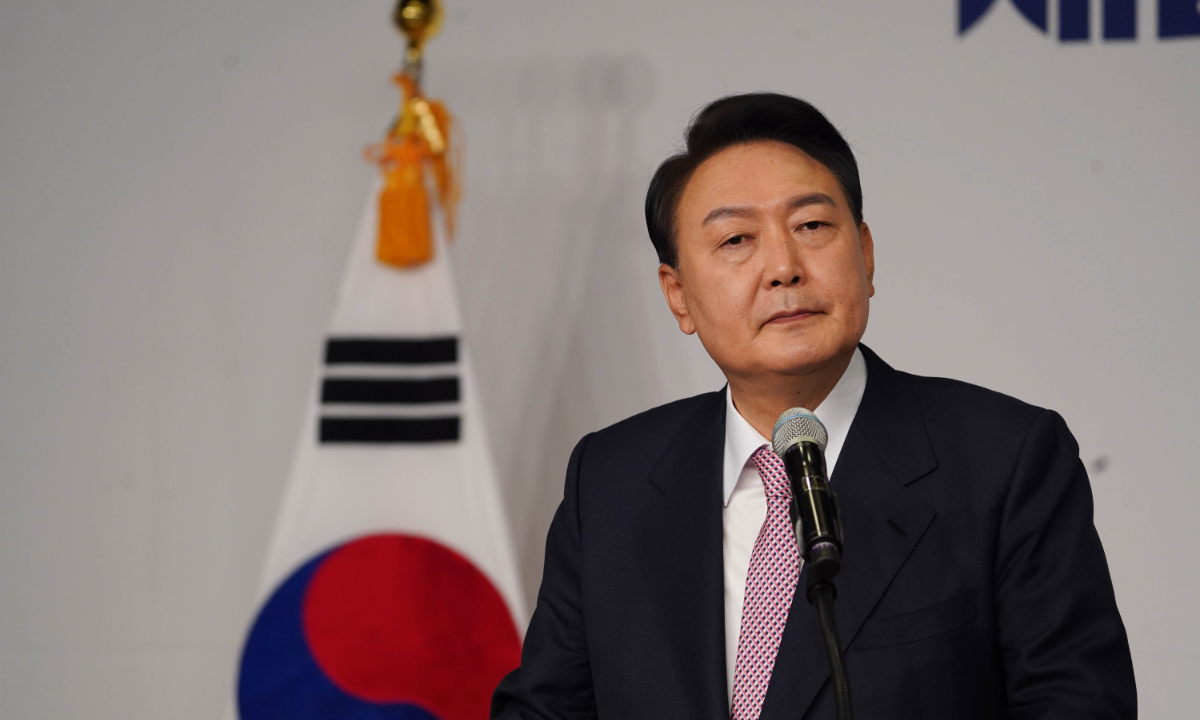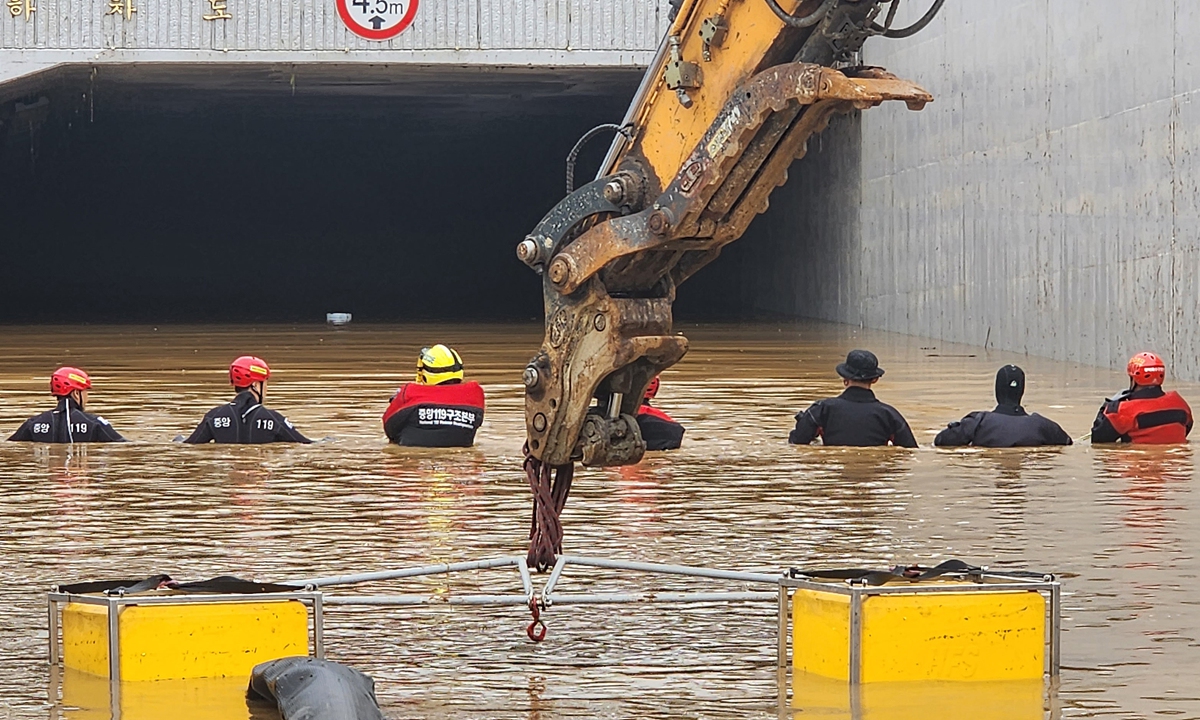
South Korean President Yoon Suk-yeol Photo: Xinhua News Agency
Contrary to usual practice, South Korean President Yoon Suk-yeol made a high-profile pledge on Saturday to "expand the scale" of his country's military assistance to Ukraine during his sudden visit to Ukraine, an indication that he has decided to side with the US-led NATO amid the Russia-Ukraine conflict, Chinese observers said. They warned that such one-sidedness and a more conservative South Korean administration would bring subtle changes in the political pattern of Northeast Asia.
Yoon made an unannounced visit to Ukraine on Saturday at the end of a trip that earlier took him to Lithuania for the NATO Summit and then to Poland for an official visit, according to South Korean media outlet Yonhap News Agency.
During the visit to Kiev for a meeting with President Volodymyr Zelenskiy, Yoon said in a press conference that South Korea plans to provide "a larger scale of military supplies" to Ukraine this year, following last year's provision of non-lethal supplies such as body armor and helmets. He did not give more details, Reuters reported on Saturday.
Yoon said South Korea plans to provide Ukraine with $150 million in humanitarian aid this year, following about $100 million in 2022.
In the past, South Korea provided military aid to Ukraine in a low-key style as the country had concerns, given that its huge trade volume with Russia is also important. This time Yoon's unexpected visit and high-profile pledge of military aid to Ukraine indicates that Seoul has completely taken sides with the US-led NATO amid the Russia-Ukraine conflict, Lü Chao, an expert on the Korean Peninsula at the Liaoning Academy of Social Sciences, told the Global Times on Sunday.
Under such circumstances, South Korea's aid to Ukraine could cover lethal military supplies, the expert predicted.
"Following the US" - this foreign policy of South Korea has become more evident with Seoul resolutely choosing to stand on the side of the US, Lü pointed out.
From taking a relatively independent and rational position to inclining toward one side, South Korea's change in its foreign policy would bring subtle changes in East and Northeast Asia as its relations with Russia are expected to deteriorate. Also, as it leans closer to the aggressive NATO, Seoul's ties with Beijing may become tense, although at the same time its ties with Tokyo under the US-led Indo-Pacific Strategy are inching closer, observers believe, noting this would undermine stability in the region.
Notably, in the press conference on Saturday, Yoon began his statement with an analogy between the Korean War (1950-53) and the Ukraine crisis, claiming "The current situation facing Ukraine reminds us of the past situation of the Republic of Korea," AP reported.
But the Korean War 70 years ago and the Ukraine crisis are not at all alike, said Da Zhigang, director of the Institute of Northeast Asian Studies at Heilongjiang Provincial Academy of Social Sciences, noting such analogy is absurd.
The Korean War resulted from the Cold War. When both North and South Korea wanted to unify the peninsula, under the interference of the US, the Korean War broke out. The nature, the influence and the background of the Korean War and the Ukraine crisis are not comparable, Da noted.
Da believes the comparison Yoon made is aimed at securing a piece of the pie during future post-war reconstruction in Ukraine, as he believes boasting of the post-war economic and social prowess of South Korea in the past 70 years can pave the way for South Korean enterprises in Ukraine in the future.

South Korean rescue workers search for missing people along a road submerged by floodwaters leading to an underground tunnel in flood waters after heavy rains on July 16, 2023 in Cheongju, South Korea. Flooding and landslides caused by heavy rains have killed at least 35 people nationwide and left more than 10 people missing while thousands evacuated their homes due to rain damage, authorities said. Photo: VCG
However, just as deadly floods and landslides killed 35 in South Korea as of press time, Yoon being busy promising weapons to Ukraine has sparked wide criticism from the South Korean public and opposition parties, according to observers.
The arbitrary move of Yoon's administration is very likely to face a backlash at home with voices bashing the government for abandoning the previous rational and independent diplomacy and risking the national interest and security to take sides, observers noted.





